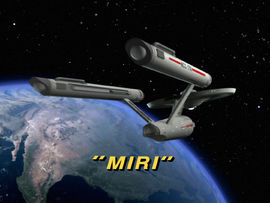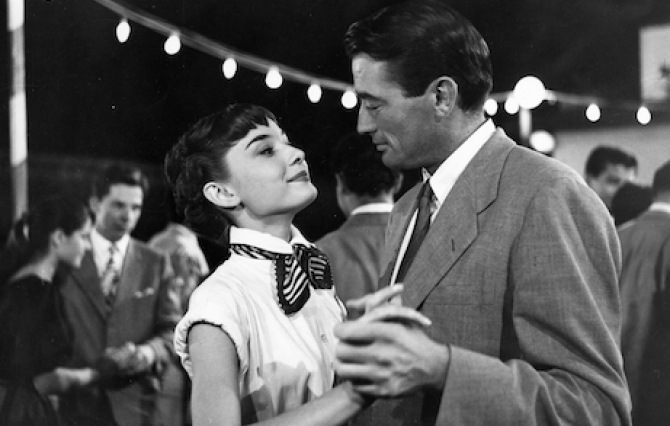Star Trek celebrated its fiftieth anniversary this month. So, here on Redeeming Culture, we’re going to release a short review of every episode of Season One, one episode per day, all month long; for each episode, we’re writing a 3-sentence recap, a 3-word review, and (as much as we can) answering the questions “What fears or hopes are conquered or realized?” and “How does this point to Jesus or to the way God made us?”
For more about Trektember, read our preview post. Please note that there are minor plot spoilers for this episode below.
Today’s episode is number 11: Miri.

Three-sentence Recap
On a planet that looks exactly like Earth (a mystery which is never explained), Kirk and co. find a society of children who have lived for hundreds of years, and a plague that keeps them young for centuries – but kills them as soon as they reach adulthood. They soon realize that the plague has infected them, too, threatening to kill them off as it does all adults on this world. Can the crew keep a group of feral children at bay long enough to save themselves, and Miri, a local girl who is nearing adulthood?
Three-word Review
Heartbreaking and thought-provoking.*
Big Sci-Fi Concepts
- The idea of children (or child-like people) ruling an entire culture has been played with in many sci-fi stories. This take on the concept seems to be the most raw and feral.
- Going along with that thread, the concept of lost or deferred childhood is a tragic tale often told in science fiction.
- “Longevity research gone wrong” is another sci-fi premise that gets explored often; it fits into the “hubris of playing god” genre of sci-fi story arcs.
Fears Conquered/Hopes Realized
- A two-for-one: there is both a hope and a fear of never growing up inherent in all of us. While we (especially when young) can’t wait to be a little older, we also (especially when older) fear the passage of time, and long for our youth. Miri has realized that dream, and found it wanting. And when she finally realizes her plight, she must face her fear.
What does this episode tell us about God or about man?
Our culture has a lot to say about the special status children have. And for good reason; the Bible welcomes children and insists that they are particularly beloved by God, and that the true believer in Christ must become like a child in their worship and desire for Jesus.
But this group of children have had their childhood destroyed by terrible things. And they’ve had to live with that pain and that aborted childhood for many decades, becoming warped and twisted in their play. Their true nature as sinners has begun to show through; they act as if they’re uneducated adults pretending to be children, not playing without care but without innocence, playing barbaric and violent games with real consequence.
And this all underscores the truth of what God says when He commands us to have faith like children, to become like babies before Him: the “Onlies” on Miri’s planet are not needy, they’re self-sufficient. They’re not joyful, they’re flippant. At times, even bloodthirsty. It’s a grisly scene, and as humans, we don’t like it.
Our hearts see this as wrong because it is. When Christ calls us to Himself, He wants us to come needy, seeking joy, and with empty hands to receive His blood to cleanse our sins.
• • •
*Hyphenated words count as one word. Captain’s orders.
• • •
Thank you for reading Redeeming Culture! Come back tomorrow for more Trektember as we look at episode 12 of Star Trek: “The Conscience of the King”.


